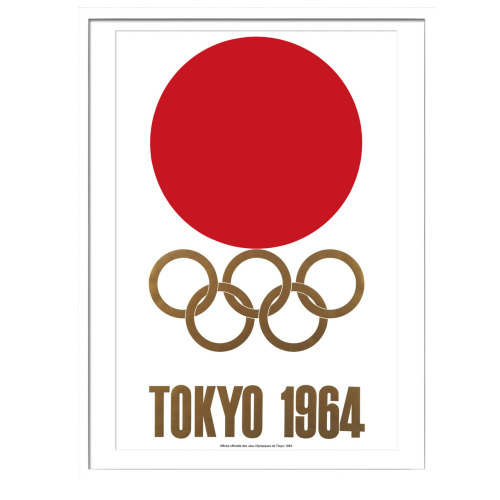Not really art related, just timely. Tokyo 1964 - Tokyo had been awarded the organization of th
Not really art related, just timely. Tokyo 1964 - Tokyo had been awarded the organization of the 1940 Summer Olympics, but this honor was subsequently passed to Helsinki because of Japan’s invasion of China, before ultimately being canceled because of World War II. The 1964 Summer Games were the first Olympics held in Asia, and the first time South Africa was barred from taking part due to its apartheid system in sports. The 1964 Summer Olympics in Tokyo celebrated Japan’s progress and reemergence on the world stage. The new Japan was no longer a wartime enemy, but a peaceful country that threatened no one, and this transformation was accomplished in less than 20 years. Japan placed 3rd with 29 medals, 16 gold, 5 silver, 8 bronze. Korea placed 27th with 2 silver, 1 bronze. Taiwan competed with no medals and mainland China did not compete neither did North Korea. Seoul Olympics - These games were the last for two of the world’s “dominating” sport powers, the Soviet Union and East Germany, as both ceased to exist before the next Olympic Games. North Korea, still officially at war with South Korea, and its allies, Albania, Cuba, Madagascar and Seychelles boycotted the games. Hosting the 1988 Olympics presented an opportunity to bring international attention to South Korea. In an attempt to follow the model of 1964 Tokyo Olympics as a rite of passage for the Japanese economy and re-integration of Japan in the family of nations in the post-war era, the Korean government hoped to use the Olympics as a “coming-out party” for the newly industrialized Korean economy. The South Korean government hoped the Olympics would symbolize a new legitimacy of Korea in world affairs. The Olympics gave a powerful impetus to the development of South Korea’s relations with Eastern Europe, the USSR and with the People’s Republic of China. The desire not to taint the Olympic Games with military dictatorship and riots served as an impetus for Korea’s transition to democracy. South Korea placed 4th with 33 medals, 12 gold, 10 silver, 11 bronze. China placed 11th with 28 medals, 5 gold, 11 silver, 12 bronze. Japan placed 14th with 14 medals, 4 gold, 3 silver, 7 bronze. Mongolia placed 46th with 1 medals, 1 bronze. Beijing 2008 - A variety of concerns over the Games, or China’s hosting of the Games, had been expressed by various entities, including allegations that China violated its pledge to allow open media access, various alleged human rights violations, its continuous support of repressive regimes. It ended up being a success. China placed first with 100 medals, 51 gold, 21 silver, 28 bronze. South Korea placed 7th with 31 medals, 13 gold, 10 silver, 8 bronze. Japan placed 8th with 25 medals, 9 gold, 6 silver, 10 bronze. Mongolia placed 31st with 4 medals, 2 gold, 2 silver. North Korea placed 34th with 6 medals,2 gold, 1, silver, 3 bronze. -- source link
Tumblr Blog : teenagesmog.tumblr.com


